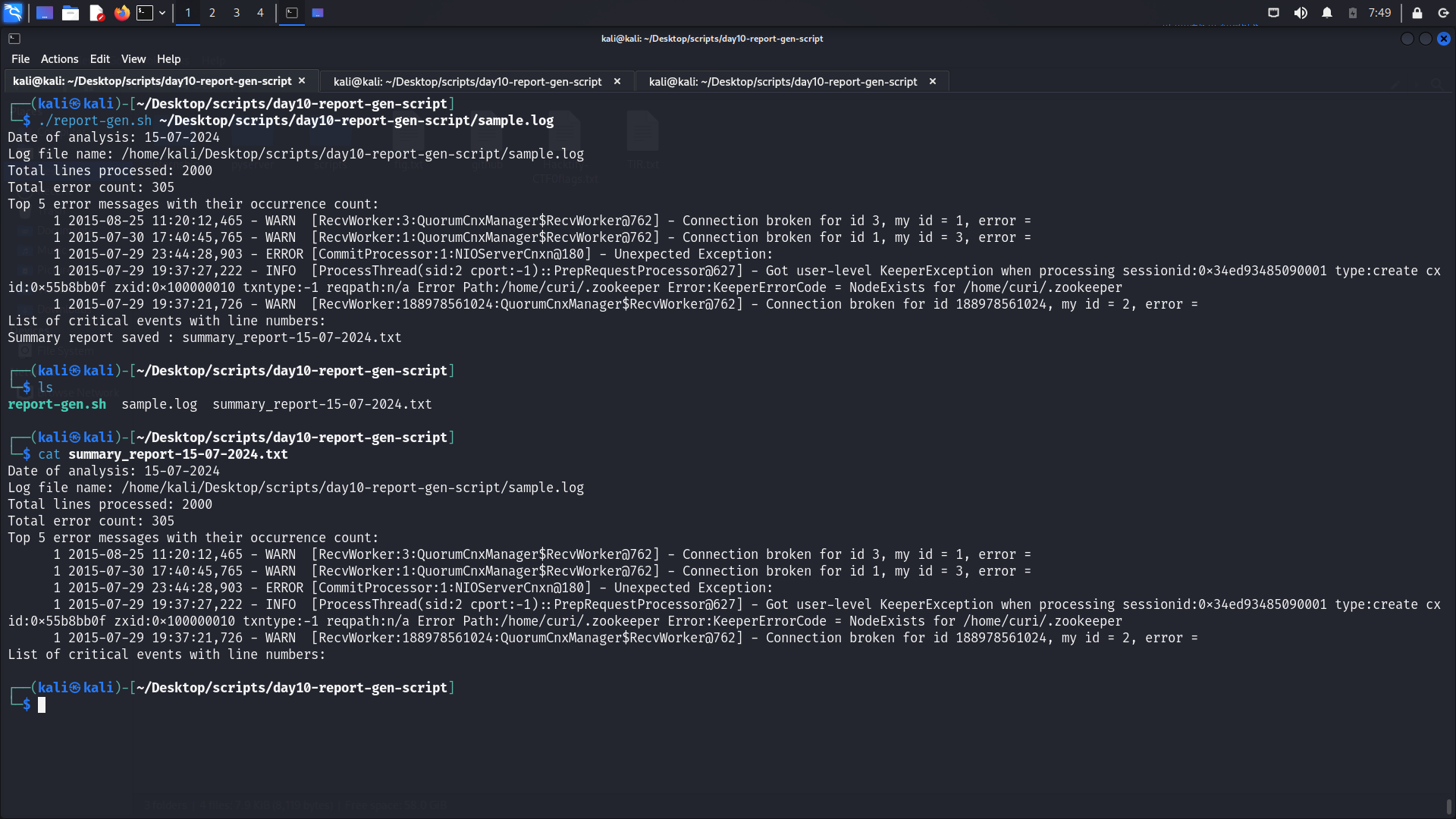How to Automate Log File Analysis Using Bash Script
 Sahil Mhatre
Sahil Mhatre2 min read
Table of contents
The script below will generate a summary of:
Date of analysis
Log file name
Total lines processed
Total error count
Top 5 error messages with their occurrence count
List of critical events with line numbers
Code:
#!/bin/bash
# Check if exactly one argument is passed
if [ $# -ne 1 ]; then
echo "Usage: $0 <path to log file>"
exit 1
fi
# Assign the first argument to log_file
log_file=$1
# Check if the log file exists and is readable
if [ ! -f "$log_file" ]; then
echo "Error: Log file '$log_file' not found or is not a file."
exit 1
fi
if [ ! -r "$log_file" ]; then
echo "Error: Log file '$log_file' is not readable."
exit 1
fi
# Get the current date
dt=$(date +%d-%m-%Y)
# Get the number of lines in the log file
num_lines=$(wc -l < "$log_file")
# Check for errors in the log file
num_errors=$(grep -i "error" "$log_file" | wc -l)
# Generate the summary report file
report_file="summary_report-$dt.txt"
echo "Date of analysis: $dt" > "$report_file"
echo "Log file name: $log_file" >> "$report_file"
echo "Total lines processed: $num_lines" >> "$report_file"
echo "Total error count: $num_errors" >> "$report_file"
# Get the top 5 error messages with their occurrence count
echo "Top 5 error messages with their occurrence count:" >> "$report_file"
grep -i "error" "$log_file" | sort | uniq -c | sort -nr | head -5 >> "$report_file"
# List critical events with line numbers (assuming 'critical' keyword for critical events)
echo "List of critical events with line numbers:" >> "$report_file"
grep -ni "critical" "$log_file" >> "$report_file"
cat $report_file
echo "Summary report saved : $report_file"
OUTPUT:

Log file used for analysis: https://github.com/logpai/loghub/blob/master/Zookeeper/Zookeeper_2k.log
0
Subscribe to my newsletter
Read articles from Sahil Mhatre directly inside your inbox. Subscribe to the newsletter, and don't miss out.
Written by
